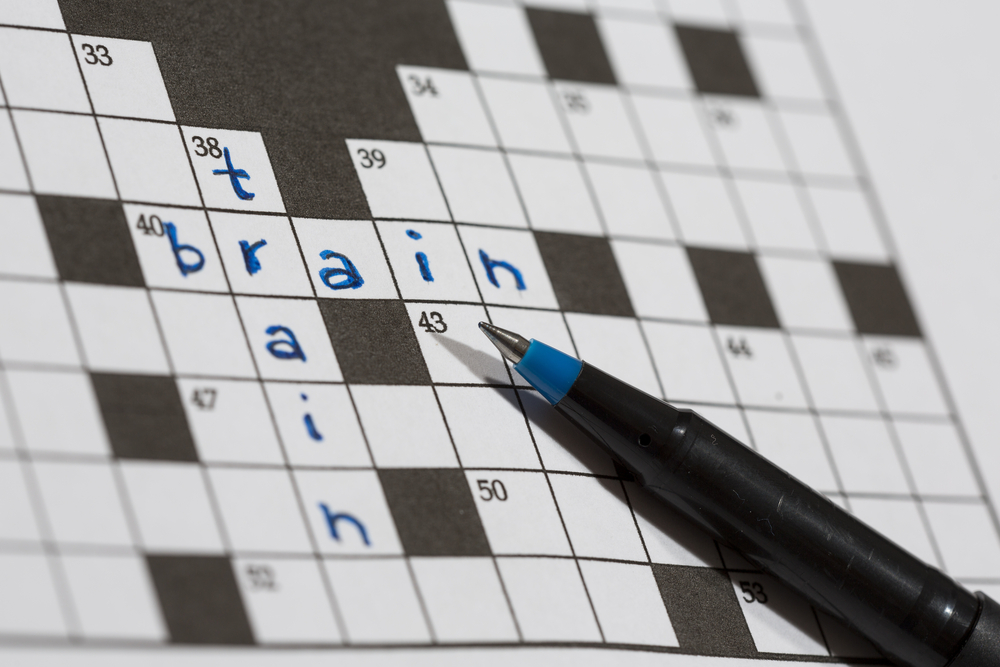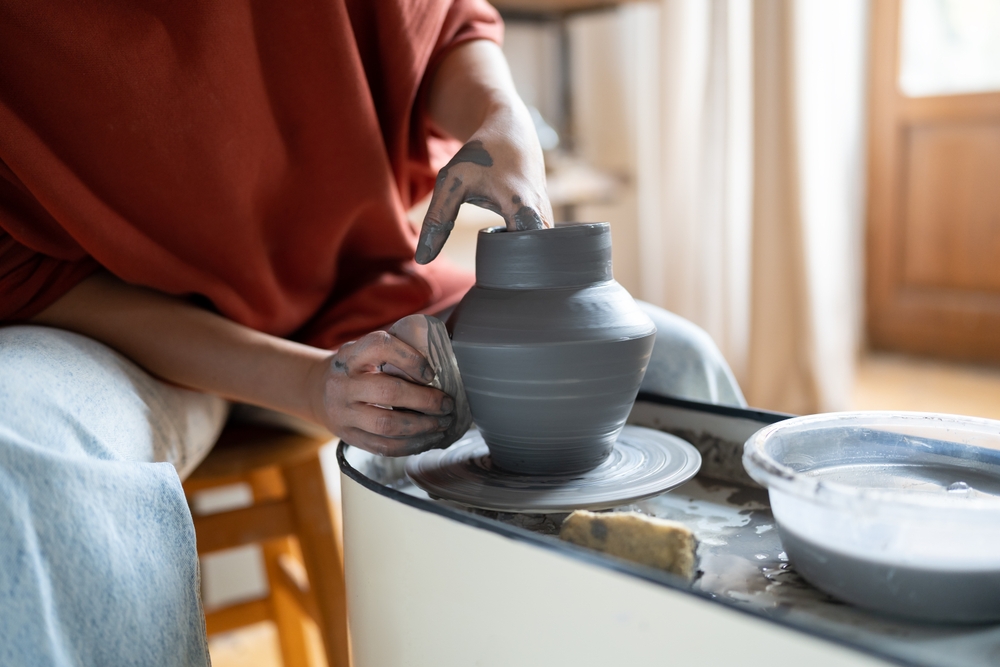Modern life is packed with distractions, but your brain still needs a daily workout. Memory is one of the first cognitive functions to slip when underused, yet you do not need to study textbooks to sharpen it. There are simple and enjoyable hobbies that challenge your mind in surprising ways. These hobbies improve memory by reinforcing mental patterns, strengthening neural connections, and improving attention to detail. If you want to stay sharp while having fun, these 8 hobbies can quietly help you train your memory every single day.
Playing Musical Instruments Stimulates Brain Connectivity

Whether it is strumming a guitar or practicing piano scales, music engages multiple brain areas at once. Learning notes, chords, and rhythm improves working memory, which is the short-term system your brain uses to keep track of tasks. Playing songs from memory enhances recall and strengthens your ability to retrieve information quickly. Music also requires you to recognize patterns, multitask, and pay attention to timing. Over time, this boosts cognitive flexibility and long-term memory. Even casual playing has benefits, so this is one of the most rewarding hobbies for mind and mood alike.
Gardening Improves Recall and Attention

Tending to plants involves remembering watering schedules, identifying plant species, and planning garden layouts. This makes gardening an ideal low-pressure way to train memory. People who garden frequently develop better recall of sequences, timing, and location-based memory. Research shows that being outdoors and engaging the senses can also reduce brain fog and stress, both of which affect memory. Gardening may seem slow and soothing, but it is secretly sharpening your focus every time you dig in the dirt. If you want hobbies that connect nature with cognitive training, gardening is an ideal match.
Learning a New Language Builds Neural Pathways

Learning a second language is one of the most powerful hobbies for memory training. It challenges the hippocampus, the part of the brain linked to learning and memory. When you memorize vocabulary, learn grammar rules, and practice pronunciation, your brain forms new neural pathways and strengthens existing ones. Multilingual people often show slower cognitive decline with age. Language learning apps, flashcards, and conversation groups provide daily challenges that boost both short-term and long-term memory. If you enjoy structured learning with lifelong benefits, this is one of the best hobbies to start now.
Cooking Trains Procedural Memory

Following a recipe involves recalling ingredients, remembering cooking times, and adjusting techniques. This makes cooking a hands-on hobby that supports procedural memory, which is responsible for performing sequences of actions. Repeating recipes from memory builds confidence and increases accuracy. Experimenting with new cuisines also stimulates your senses, improving sensory memory. Cooking engages focus, multitasking, and decision-making, all of which support memory health. Whether you are preparing daily meals or elaborate dinners, cooking trains your brain as much as your palate. It is one of the few hobbies that combines nourishment with neurological growth.
Playing Puzzle Games Sharpens Pattern Recognition

Crossword puzzles, Sudoku, and brain-training games may feel like entertainment, but they are powerful memory tools. They improve short-term memory by requiring quick thinking and problem solving. They also enhance working memory, especially when you need to keep multiple variables in mind. These games reinforce logic, language skills, and sequential reasoning. When played regularly, puzzles help the brain retain information and improve overall cognitive resilience. Puzzles are perfect hobbies for people who enjoy mental challenges that feel like play. You can do them anywhere, and they never stop helping your brain grow stronger.
Photography Boosts Visual Memory

Capturing the perfect photo requires more than just technical skill. It sharpens visual-spatial memory and attention to detail. Photographers must remember lighting conditions, camera settings, and composition techniques. They also rely on their memory to recall locations, timing, and subjects. Reviewing and editing photos afterward reinforces visual recall and strengthens observational skills. Whether you are using a smartphone or a professional camera, photography encourages mindfulness and memorization of visual patterns. As far as creative hobbies go, this one builds memory in both subtle and powerful ways.
Dancing Enhances Muscle Memory and Focus

Dance routines demand concentration, coordination, and the ability to recall sequences. This makes dancing one of the most engaging physical hobbies for memory training. Muscle memory, or procedural memory, becomes stronger with repetition. Remembering choreography also engages the brain’s spatial and rhythm processing centers. Dancing with others adds an extra memory boost by requiring you to stay synchronized with a group. Whether it is ballroom, hip-hop, or Zumba, dancing combines physical health with mental agility. Few hobbies engage both body and memory as completely as this one.
Reading Fiction Exercises Mental Visualization

When you read fiction, your brain constructs scenes, characters, and timelines. This process engages episodic memory, which is the system responsible for remembering experiences and events. Keeping track of plot developments and character arcs challenges recall. Reading regularly also enhances verbal memory and improves your vocabulary. The more complex the story, the more your brain must work to retain details. Reading is one of the oldest and most rewarding hobbies for mental stimulation. It encourages deep focus and builds memory in ways that few passive activities can match.
Why These Hobbies Are Effective for Memory

What makes these hobbies so effective is the combination of consistency, enjoyment, and complexity. Unlike memorization drills, these activities naturally require you to recall steps, sequences, and details in real time. This constant practice strengthens neural pathways, keeping your brain flexible and alert. Engaging in hobbies daily creates a lifestyle where memory training is effortless. By making the process fun, these hobbies eliminate the stress often associated with cognitive work. As a result, you stay mentally sharp without even realizing it.
Start Small and Stay Consistent

You do not need to take up all these hobbies at once. Start with one that appeals to you and commit to practicing it regularly. Even short daily sessions can create meaningful change in your memory over time. For example, ten minutes of language practice or a short puzzle game can offer noticeable cognitive benefits. The key is to stick with the habit and allow the challenge to build. Over time, your memory will improve as part of your daily routine. These hobbies are enjoyable, but they are also powerful tools for lifelong brain health.
Read More: 8 Habits the Smartest People in the World Follow Daily
The Link Between Enjoyment and Brain Health

Neuroscience shows that emotional connection improves memory retention. When you enjoy a task, your brain releases dopamine, which strengthens learning and recall. This is why fun hobbies often outperform formal study techniques. When your brain associates learning with pleasure, it stores information more efficiently. Hobbies that bring joy while requiring mental effort create ideal conditions for memory development. This makes them a perfect choice for anyone seeking to protect cognitive function with age.
A Lifelong Strategy for Mental Fitness

Memory training does not have to feel like a chore. With the right hobbies, you can build mental strength while relaxing, socializing, or exploring your creativity. Whether you prefer dancing, gardening, or solving puzzles, each activity challenges your memory in a unique way. Practicing these hobbies regularly helps maintain a sharper, more focused mind throughout life. Instead of waiting for signs of forgetfulness, use hobbies as your daily defense. They turn everyday moments into exercises for your brain.
Read More: The 9 ‘Least Attractive’ Male Hobbies, According To Women
Disclaimer: This article was created with AI assistance and edited by a human for accuracy and clarity.
Disclaimer: This information is not intended to be a substitute for professional medical advice, diagnosis or treatment and is for information only. Always seek the advice of your physician or another qualified health provider with any questions about your medical condition and/or current medication. Do not disregard professional medical advice or delay seeking advice or treatment because of something you have read here.

